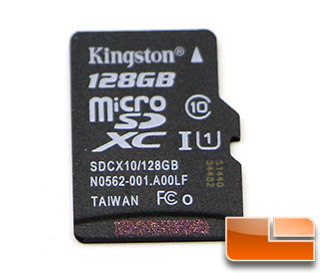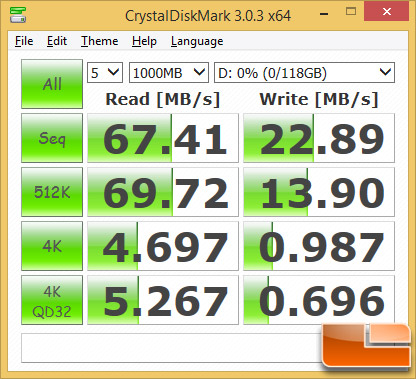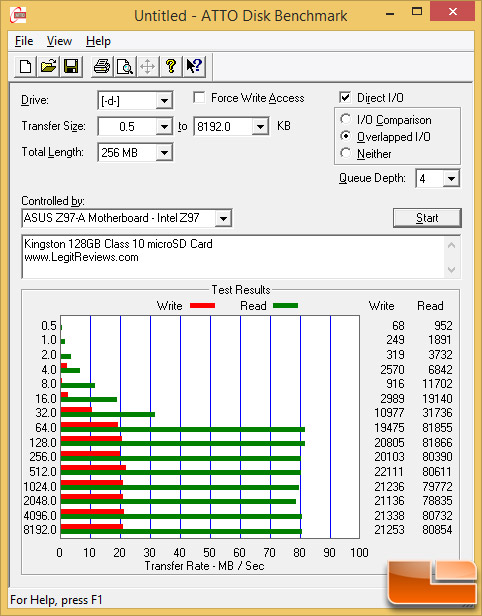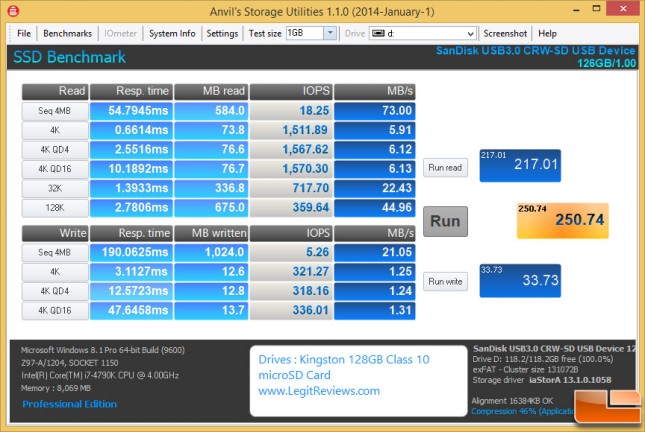Kingston Class 10 UHS-I SDXC 256GB and MicroSD 128GB Review
Kingston 128GB Class 10 MicroSD Performance
CrystalDiskMark 3.0.3 x64
CrystalDiskMark is a small benchmark utility for drives and enables rapid measurement of sequential and random read/write speeds. Note that CDM only supports Native Command Queuing (NCQ) with a queue depth of 32.
Benchmark Results: CrystalDiskMark showed that we topped out at 67.41MB/s sequential read and 22.89MB/s sequential write on the Kingston 128GB Class 10 UHS-I MicroSD memory card.
ATTO v2.47
ATTO is one of the oldest drive benchmarks still being used today and is still very relevant in the SSD world. ATTO measures transfers across a specific volume length. It measures raw transfer rates for both reads and writes and places the data into graphs that can be very easily interpreted. The test was run with the default runs of 0.5KB through 8192KB transfer sizes with the total length being 256MB.
Benchmark Results: On ATTO we were able to get up to 82MB/s read and 22MB/s write, which are solid numbers for a Class 10 MicroSD card!
Anvil Storage Utilities 1.1.0
Along with the move to a new platform, we decided to make a change in one of the benchmarks. Theres a relatively new benchmark called Anvil Storage Utilities that is in beta but close to production. Its a very powerful tool that measures performance through a variety of tests which can be customized. Since some of the tests more or less duplicate what we get from other benchmarks we use already, we decided to use the IOPS (Input/Output Operations Per Second) testing on 4kb file sizes at a queue depth of 4, 16, and 32. IOPS performance is something SSD makers tout quite a bit but we generally dont do a lot of IOPS testing because frankly a lot of users cant relate to IOPS metrics as well and it tends to be more meaningful to the enterprise/server crowd. Still, it is another performance indicator with relevance and while some drives post good MB/s numbers, their IOPS scores arent always commensurate which this test will prove out.
Benchmark Results: We got 93.00MB/s sequential read and 21.05MB/s sequential write on the sequential 4MB file size tests on Anvil’s Storage Utilities benchmark using 46% compression to simulate applications. These results are not as high as what we saw on the 256GB SDXC card tested on the previous page, but still pretty damn good considering this is a mainstream MicroSD memory card.




